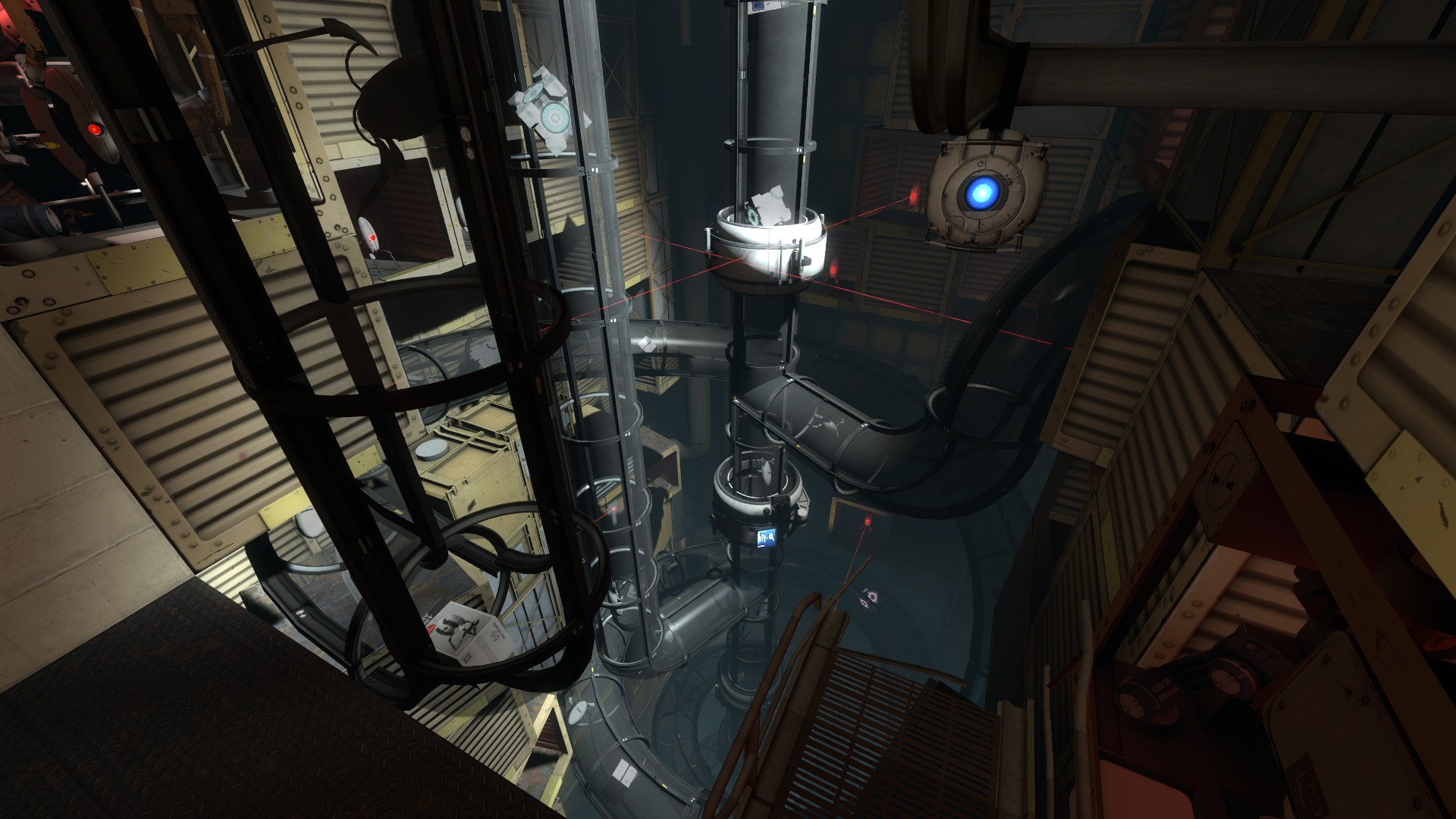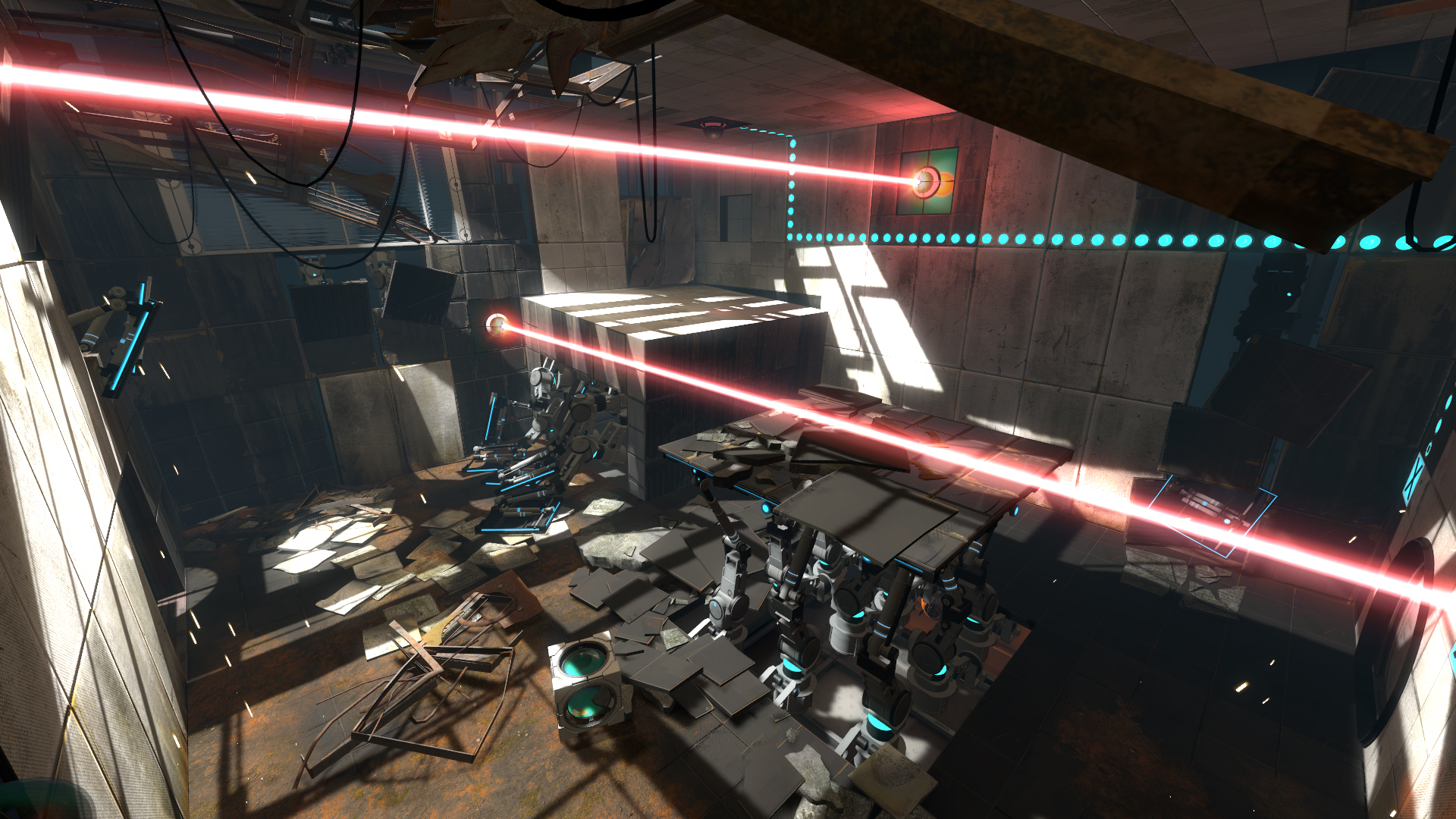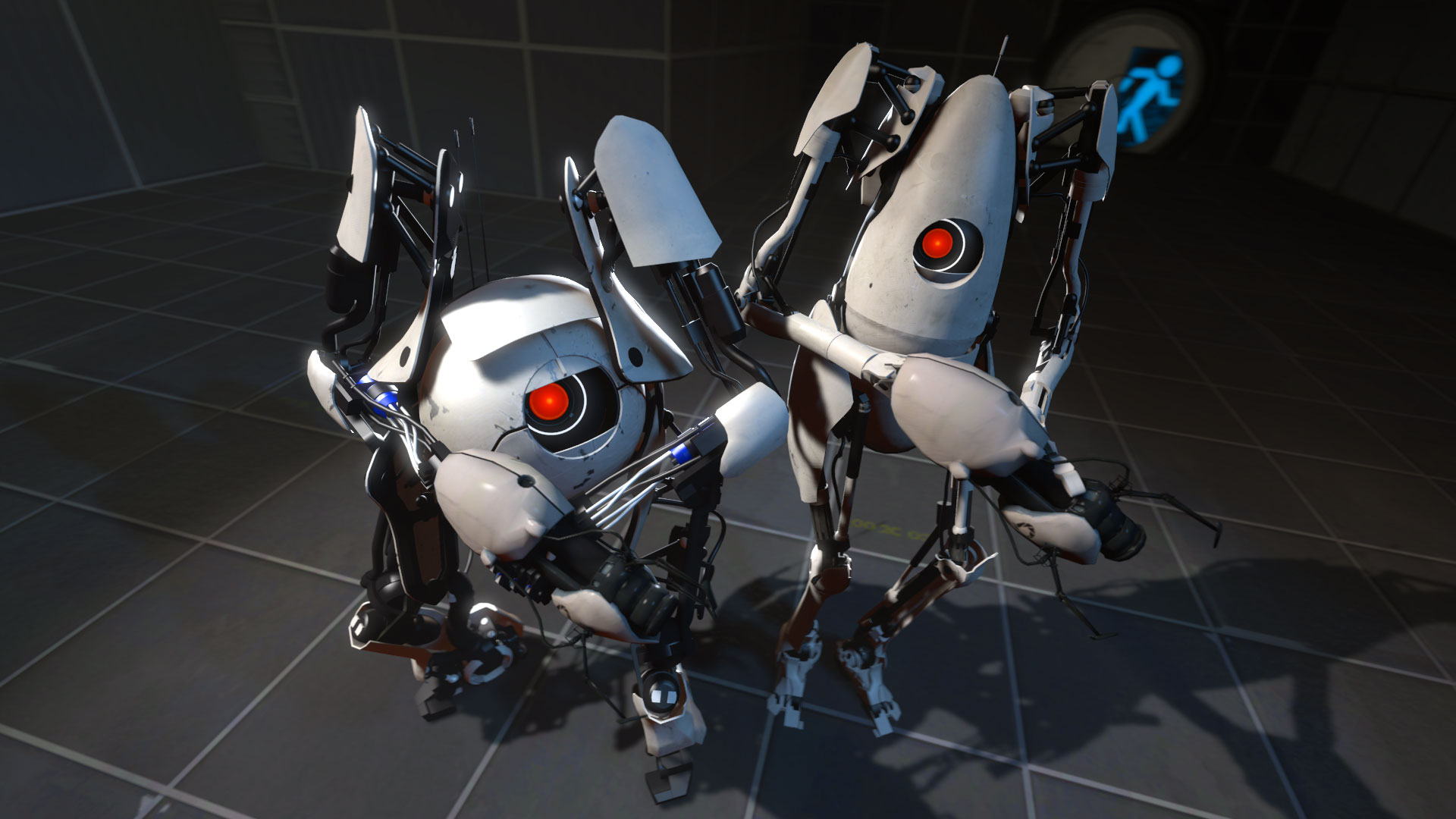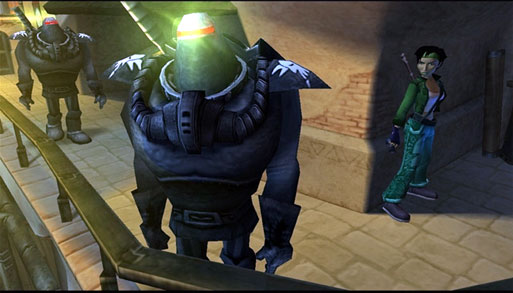Portal 2
PC, Xbox 360, PS3
Developer: Valve
Publisher: Valve
Release Date: April 19th, 2011
Pros:
- Clever writing and voice acting, unrivaled by any other game
- Improved visuals and clear, fluid animations
- New elements make the puzzles as fun and challenging as ever
- Co-op works well and gives some memorable moments
- A bit shorter than desired for some
- Load screens become a norm
- No Challenge Rooms?
Portal was one of the most original games of 2007. It was a first-person shooter that required you to think instead of pull the trigger, with complex physics puzzles and one of the best antagonists to ever grace a video game. It raked up awards and recognition, and fans waited impatiently for a sequel...and then purchased a ton of indie games to make it come out even faster. After years of over-quoting "The Cake is a Lie!", finally the most anticipated sequel of the year has arrived.
Still Alive
Portal 2 follows Chell, the heroine from the first game that escaped Aperture Labs and destroyed GLaDOS, the rogue AI that took over the facility. You awake in a secured room and are greeted by Wheatley, the friendly robot and caretaker to the test subjects. The same lab you escaped before is deteriorating after GLaDOS was destroyed. Through a serious error on Wheatley's part, you inadvertantly restart GLaDOS; who drops you back into the labs for further testing.
Story has been somewhat of a second thought with Portal. It was rarely ever laid out in front of you, but rather hinted at through markings on the walls and discovered lab notes on a marker board. It was this sense of never truly realizing exactly what happened that gave Portal a sense of mystery and intrigue. This game has much more dialogue, and even with GLaDOSs' intentions already revealed from the last game, there are still some surprises thrown your way. Some a bit more predictable, some absurd, and some that leave you scratching your head. Though a little less cryptic than the first, it's still enough to hold your interest.
Overgrown
Despite taking place in the same lab, the rooms are barely distinguishable because of the incredible visual improvement the game offers. With GLaDOS rebooted, the rooms begin to fix themselves before your eyes. Seamless animations and play on lighting make it a sight to behold. There were rooms I encountered that made me scratch my head as to how my computer was still running everything so smoothly. You subtely transition from a decomissioned facility to a slighty more improved one, and even back to how it all looked before without even noticing. Little touches like the presentation of how turrets are assembeled piece by piece were enough raise an eyebrow. Noticing the smaller details helps to show how much work went in to improving an already great game.
When the eye candy isn't distracting you, the voicework is making you laugh. Stephen Merchant's addition as Wheatley is a welcome one; his hilarious mumblings and observations will cause you to take a break from the action to just laugh. The timing, emphasis, and addictive accent will make him an easy favorite. Ellen Mclain somehow manages to up her previous performance as GLaDOS, skimping the formal introduction of the previous game and instead jumping straight to sarcastic mockery. Even J.K. Simmons voicing Cave Johnson was a welcome surprise to encounter. The writing is original, fresh, and delivered flawlessly.
Maybe if I...No That's Not it
Portal gameplay consists of you working your way from room to room, solving each physics puzzle to pass into the next. What starts as a simple "Place the box on the button" soon becomes a complex series of switches and portal placement to continue to the next room. Some you will figure out pretty quickly, some will require you to take a moment to step back and look over the whole room, and some will have you trying things over and over until you realize the solution. Completion of each room is always satisfying as the solutions for most of the puzzles can be relatively complicated on later levels.
Along with the return of a few room elements, plenty of new ones make their way to the scene. Faith plates act as spring boards that shoot you in a direction. Redirection Cubes redirect lasers to hit certain objects or enemies. Beams of light will form walkways that can be redirected. Coupled with the Portal gun of shooting an entrance and exit portal, these elements can become chained together to open a door or dispose of a turret. Just when you start to think you have seen it all, some element will be thrown in to mix things up.
The most complex elements to be thrown in are the gels, which can be spread along the floor. Repulsion gel will bounce you to an equivalent height, Propulsion gel will speed you up and launch you off ramps, and Conversion gel will allow surfaces to host portals. One at a time these aren't too bad to get a hold on, but in the later puzzles when they all come together it can get pretty complex. I was not as big a fan of Conversion gel, as it created too many variables in a puzzle. I wound up painting an entire room trying to figure out which way to turn, as the previous rooms were much more linear in what you were intended to do.
Portal Buddies
Co-op is a new territory for Portal, and one that proved most enjoyable. In co-op, each player takes control of one of two bots that GLaDOS is testing; Atlas and P-Body. Each player gets a portal gun and progress from room to room, much like in the single player campaign. Teamwork is essential and communication is made through pinging different portal locations to get your message across non-verbally.
Figuring out the rooms with a buddy over the mic is the best way to experience the game. I played with someone who was also new, and found that thinking with 4 portals in mind is much more challenging than 2 portals. Puzzles require timing, coordination, and patience. Having voice communication worked wonders in laying out an overall goal, but there are elements in place to communicate non-verbally if the situation arises.
To Be Continued?
The biggest complaint you hear about the game is the length. The single player campaign can take you roughly 6-9 hours depending on how fast you figure out the solution to the puzzles. With co-op, you can tack on about a good 4-5 hours. This adds up to about a good 10-14 hours of gameplay. I felt like the game was long enough in terms of a general campaign, being careful not to overstay its welcome.
It's the lack of any additional options that surprised me. Single player and co-op is all well and good, but the potential for challenge rooms like the first installment was great; and would have been a nice addition. Once you play through what is offered, the only real incentive to go back through again would be for achievements, hidden easter eggs, and developer commentary.
Overall
Portal 2 delivered on all my expectations, even exceeding in most areas. Clever puzzle design led to many great "Ah-Ha!" moments, witty retorts led to many "Ha Ha" moments, and failing to time that jump correctly led to many "Ahhh!" moments. It is an incredibly fun single player experience that I am sure I will revisit time and time again.


















